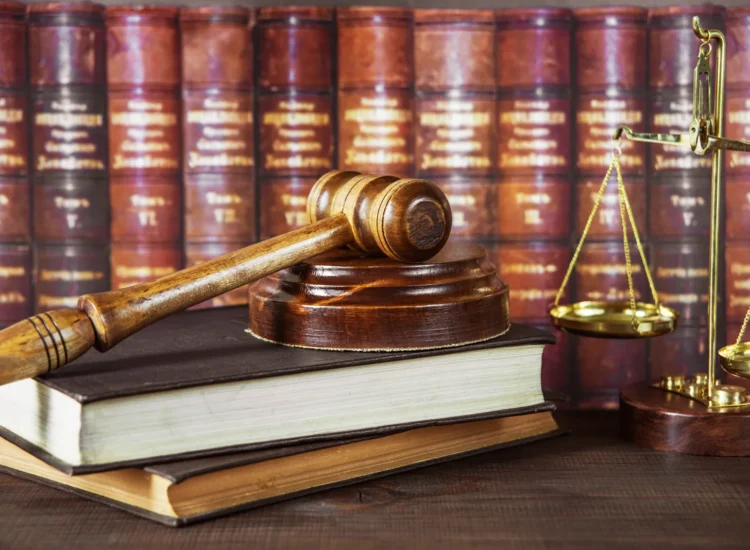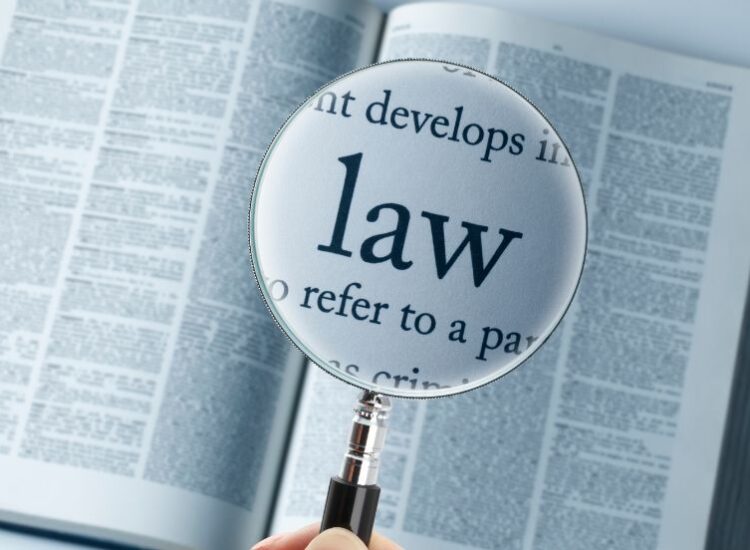Comprehensive Guide to Maritime Law Firms
Maritime law firms are essential in navigating the intricate legal challenges tied to maritime activities. Whether addressing shipping disputes or handling marine personal injury cases, these specialized firms provide invaluable support to clients across the maritime industry. For businesses and individuals alike, understanding the role of maritime law firms is key to safeguarding your rights and interests in this complex field.
Toc

What Are Maritime Law Firms?
Maritime law firms specialize in providing comprehensive legal services related to maritime and admiralty law. Maritime law—also referred to as admiralty law—is a distinct and complex branch of law that governs activities, commerce, and disputes occurring in or around navigable waters. This body of law covers everything from international shipping regulations to the rights and responsibilities of individuals working at sea. Maritime law firms bring specialized expertise to ensure compliance with these regulations, resolve disputes efficiently, and protect the interests of those operating within the maritime industry.
What Do Maritime Law Firms Do?
Maritime law firms play a crucial role in navigating the legal complexities of the maritime industry. They address legal issues that arise in both domestic and international waters, applying their in-depth knowledge of treaties, conventions, and regulations that govern maritime activities. Their work often requires a thorough understanding of the industry’s unique challenges, including jurisdictional issues, environmental concerns, and safety protocols.
Areas of Expertise
Maritime law firms handle a wide range of legal cases, offering expertise in several specialized areas. Their services often include, but are not limited to:
- Shipping and Cargo Claims: Handling disputes related to the transportation of goods, including cargo damage, delays, and breaches of shipping contracts. They also assist in ensuring compliance with international shipping agreements and resolving contractual disagreements between parties.
- Marine Insurance: Supporting clients with claims involving marine insurance policies, such as those related to damage or loss of vessels, cargo, or expensive maritime equipment. They ensure policyholders receive fair compensation and resolve disputes with insurers.
- Personal Injury and Worker Compensation: Representing maritime workers, such as seamen, dockworkers, offshore oil rig employees, and other personnel, who are injured during work or transportation. Maritime law firms specialize in laws like the Jones Act, which protects injured maritime workers and allows them to seek compensation from employers for negligence.
- Vessel Ownership and Operations: Advising shipowners on matters such as registration, compliance with safety regulations, and vessel financing. These firms also assist with issues related to charter agreements and disputes between operators and clients.
- Environmental Regulatory Compliance: Helping clients navigate the complex regulations governing pollution, waste disposal at sea, and environmental protection, including laws like MARPOL (International Convention for the Prevention of Pollution from Ships).
Who Needs a Maritime Law Firm?
A maritime law firm is essential for anyone involved in maritime operations—whether directly or indirectly. Shipowners, freight companies, fishermen, offshore drilling businesses, and even passengers who encounter disputes during maritime activities can all benefit from their expertise. These firms are particularly valuable for businesses operating in an industry where international and domestic laws often intersect.
Shipowners and operators rely on maritime lawyers to ensure their vessels comply with international safety standards, environmental regulations, and labor conventions, such as the Maritime Labor Convention (MLC). Freight companies and shipping agencies need their assistance when handling cargo claims, contract disputes, or customs compliance. Maritime law firms also play a critical role in protecting the rights of maritime workers, helping them secure fair compensation for injuries and ensuring their employers adhere to labor laws.
Passengers involved in maritime disputes, such as those involving accidents on cruise ships, ferries, or other sea vessels, can also turn to maritime law firms to seek justice and compensation. Whether the issue involves navigating complex insurance claims, resolving employer-employee disputes, or addressing environmental violations, maritime law firms provide the guidance and expertise necessary to mitigate risks and achieve favorable outcomes.
1. https://dalatfarmer.vn/mmoga-navigating-maritime-regulations-a-practical-overview/
2. https://dalatfarmer.vn/mmoga-exploring-the-fundamentals-of-international-trade-law/
3. https://dalatfarmer.vn/mmoga-foundational-concepts-in-admiralty-and-maritime-law/
4. https://dalatfarmer.vn/mmoga-understanding-jordan-maxwell-and-admiralty-law/
5. https://dalatfarmer.vn/mmoga-understanding-maritime-law-in-houston/
By addressing a wide range of legal challenges, maritime law firms act as a vital resource for safeguarding the operations and rights of those connected to the maritime industry. Their role extends beyond litigation, offering proactive strategies to ensure compliance with laws, reduce operational risks, and protect the interests of their clients in an ever-evolving industry.
Key Services Offered by Maritime Law Firms
The unique needs of the maritime industry require specialized legal expertise, as the challenges faced within this field are highly specific and complex. Maritime law firms provide a wide range of tailored services to address industry-specific concerns, offering essential support for businesses and individuals operating in this domain. Below is an overview of some of the key services they provide, with additional detail on their importance and impact.

Dispute Resolution and Litigation
Disputes are a frequent occurrence in the maritime sector, arising from various issues such as contractual disagreements, collisions at sea, cargo damage, or environmental liabilities. Maritime law firms play a critical role in providing comprehensive legal representation during disputes and litigation, aiming to resolve conflicts efficiently while minimizing financial and reputational risks for their clients.
Contractual Disputes
Contracts are at the heart of maritime operations, governing ship charters, freight agreements, marine insurance, and other critical aspects of the industry. However, disagreements can arise due to unclear terms, delayed shipments, or breaches of contract. Maritime law firms assist clients by interpreting the terms of these agreements, ensuring they are enforced properly, and resolving disputes through negotiation, arbitration, or, when necessary, court action. This service is crucial for maintaining smooth business operations and fostering trust within the industry.
Environmental Claims and Liability
Environmental issues are a major concern in the maritime industry, with incidents such as oil spills, illegal dumping, and maritime accidents potentially causing severe harm to ocean ecosystems. These events often lead to significant legal claims, regulatory penalties, and reputational damage. Maritime law firms specialize in representing shipowners, shipping companies, and other organizations involved in such cases, providing guidance on environmental compliance, liability defense, and claims mitigation. Their expertise is vital in managing the complexities of environmental law and protecting the interests of their clients.
Compliance with International Regulations
The maritime industry operates on a global scale, making compliance with international laws and conventions essential for businesses. However, navigating the intricate web of international maritime regulations can be a daunting task, as rules often differ between jurisdictions and governing bodies. Maritime law firms offer expert guidance to ensure their clients remain compliant with key international standards, including:
- SOLAS (Safety of Life at Sea Convention): Focusing on safety measures for ships, crew, and passengers, compliance with SOLAS is critical for avoiding accidents and ensuring smooth operations during voyages.
- MARPOL (International Convention for the Prevention of Pollution from Ships): This convention outlines strict regulations to minimize pollution caused by ships, including oil spills, air emissions, and waste disposal.
- UNCLOS (United Nations Convention on the Law of the Sea): Serving as the overarching legal framework for maritime activities, UNCLOS governs issues such as territorial waters, exclusive economic zones, and the rights and responsibilities of nations.
Remaining compliant with these and other regulations not only helps businesses avoid fines and legal action but also solidifies their credibility and reputation in the global maritime trade and logistics network.
Maritime law firms, with their deep understanding of both the legal and operational aspects of the industry, are indispensable partners for businesses navigating the complexities of this vital sector. From dispute resolution to regulatory compliance, their expertise empowers clients to operate confidently and efficiently in an ever-evolving global environment.
Choosing the Right Maritime Law Firm for Your Needs
Selecting the right maritime law firm is critical to achieving a successful legal outcome tailored to your unique situation. Maritime law is a specialized field involving complex regulations, international jurisdictions, and industry-specific standards. A seasoned, reputable firm not only brings legal expertise but also a deep understanding of the maritime industry’s nuances, ensuring that your case is handled with precision and care.
1. https://dalatfarmer.vn/mmoga-understanding-maritime-law-in-houston/
2. https://dalatfarmer.vn/mmoga-foundational-concepts-in-admiralty-and-maritime-law/
3. https://dalatfarmer.vn/mmoga-navigating-maritime-regulations-a-practical-overview/
4. https://dalatfarmer.vn/mmoga-exploring-the-fundamentals-of-international-trade-law/
5. https://dalatfarmer.vn/mmoga-understanding-jordan-maxwell-and-admiralty-law/

Factors to Consider
When evaluating potential law firms, consider the following key factors:
- Experience: It’s essential to choose a firm with extensive experience handling cases similar to yours. Maritime law covers a wide range of issues, from cargo disputes and ship financing to personal injury claims under the Jones Act. Firms with a proven track record in maritime law are better equipped to address the industry’s complexities and anticipate potential challenges before they arise.
- Reputation: Research the firm’s reputation by reading client testimonials, online reviews, and seeking industry referrals. A firm with strong ties to the maritime sector often demonstrates reliability, professionalism, and capability. Past clients and peers in the industry are great resources for gauging the firm’s ability to deliver favorable results.
- Global Reach: Many maritime issues involve international jurisdictions and cross-border disputes. It’s critical to work with a firm that has experience in both domestic and international maritime law. Firms with a global network and an understanding of international treaties, conventions, and regulations will give you a significant advantage, particularly in disputes that span multiple countries.
- Specialized Team: Investigate whether the firm has a team of lawyers with expertise in specific areas of maritime law. For instance, some firms may excel in environmental compliance, while others focus on commercial shipping or offshore energy disputes. A diverse team with specialized knowledge can address your unique needs more effectively.
Benefits of Hiring Specialized Firms
Working with a specialized maritime law firm offers numerous advantages that can significantly impact the outcome of your case:
- Industry Expertise: Maritime law firms have in-depth knowledge of the laws, regulations, and industry standards that govern the maritime sector. They stay updated on changes in legislation, court decisions, and international conventions, ensuring your case is handled with the latest insights.
- Focused Approach: Unlike general law firms, maritime law firms dedicate their time and resources entirely to the maritime sector. This specialized focus allows them to provide tailored strategies for each case, whether it involves ship arrests, charter party disputes, or maritime labor issues.
- Negotiation Skills: Maritime conflicts often require strong negotiation skills to resolve disputes efficiently and cost-effectively. Specialized firms are skilled at navigating tough negotiations, helping clients avoid prolonged litigation and reach favorable settlements that save time and money.
- Comprehensive Representation: From drafting contracts to representing clients in court or arbitration, specialized firms offer comprehensive legal services. They understand the intricacies of maritime operations and can assist with everything from regulatory compliance to complex financial transactions involving vessels.
- Proactive Risk Management: A specialized firm not only resolves current disputes but can also help clients manage risks proactively. By identifying potential legal pitfalls in advance, they can guide you in adopting preventative measures to avoid future conflicts.
Why the Right Choice Matters
In the maritime industry, where legal disputes can be both costly and time-sensitive, selecting the right law firm is more than just a decision—it’s a critical investment in the success of your operation. By partnering with a firm that combines experience, reputation, and global reach, you ensure that your interests are protected at every stage of the legal process. Whether you’re facing a dispute, negotiating a contract, or navigating regulatory challenges, a specialized maritime law firm can be your most valuable ally.
The Growing Importance of Maritime Law Firms in Modern Trade
With global commerce heavily reliant on maritime transport, accounting for over 80% of world trade, the role of maritime law firms has become increasingly significant. These firms not only safeguard businesses from legal risks but also navigate the complexities of international shipping regulations to ensure compliance. From resolving disputes and handling claims to addressing environmental concerns, their expertise is crucial in maintaining the smooth functioning of the global shipping industry.
Moreover, maritime law firms play a key role in promoting sustainable practices within the industry. By ensuring adherence to environmental regulations and safety protocols, they help minimize ecological impacts while fostering safer, more efficient global trade routes. This commitment to sustainability is particularly vital as the industry faces growing pressures to reduce emissions and adapt to climate change.
Whether you are a company operating fleets, a cargo owner, or an individual working at sea, understanding the pivotal role of maritime law firms can lay the foundation for successful and legally sound maritime operations. These firms offer specialized services, seasoned expertise, and a deep understanding of the challenges unique to the maritime sector. They stand as indispensable allies, helping clients navigate everything from complex international treaties to evolving industry standards in an industry that remains the backbone of global economies.










